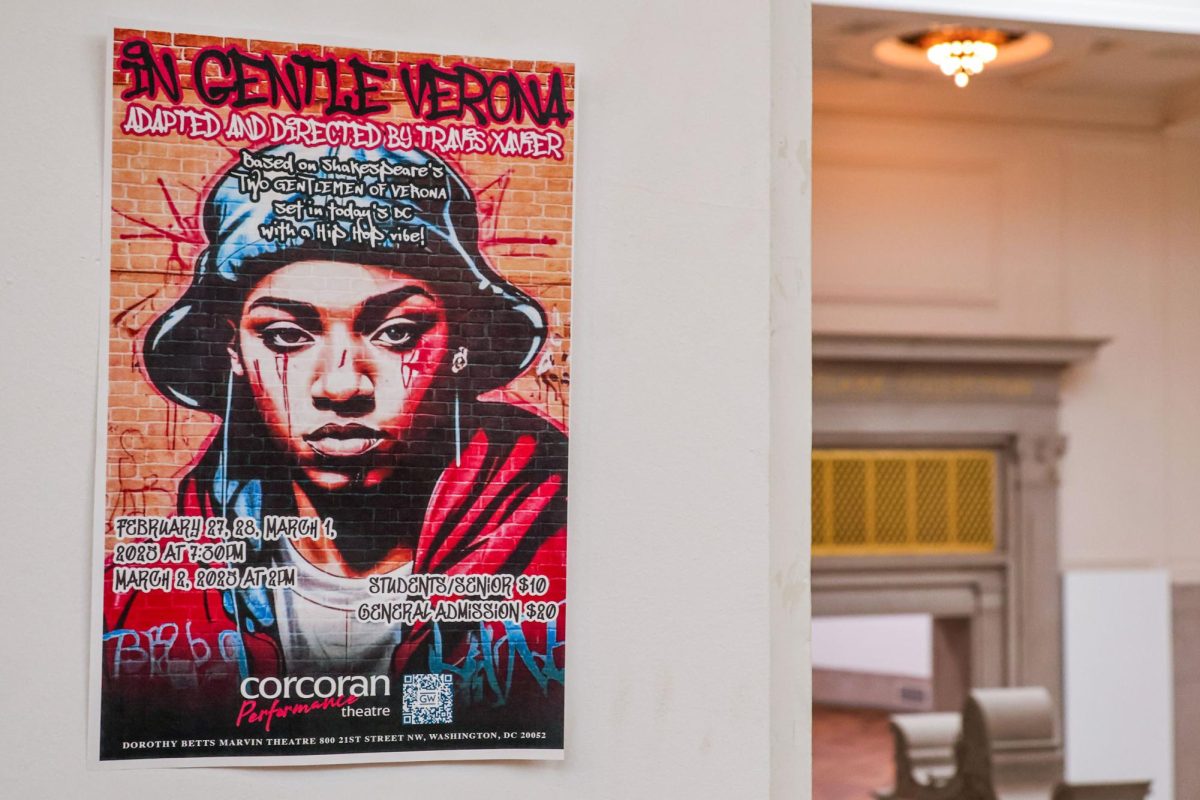Formal sorority recruitment participation continued its multiyear downward trend during the organization’s first virtual recruitment period during the COVID-19 pandemic earlier this month.
About 275 students participated in the Panhellenic Association’s sorority recruitment this year – an almost 20 percent drop compared to last year – and 214 were offered a bid, a formal invitation to join a sorority, student leaders said. The mark falls below last year’s participation in formal recruitment, which was at the time the lowest in at least 10 years, prompting all chapters to hold informal recruitment to reach more potential recruits.
Anne Graham, the director of student involvement and leadership, said the Office of Student Life connected Panhel leaders with resources, like advice from peer institutions’ chapters’ experiences leading virtual recruitment and early access to GW-licensed Zoom accounts for chapter leaders while organizing recruitment. She said the office also supported Panhel in removing the 12-credit minimum requirement for students to take part in the recruitment process to remove any barriers for students seeking to make connections in the Panhel community.
“The Office of Student Life has received positive feedback from chapter leaders, new members and chapter advisers on virtual recruitment,” Graham said in an email. “We are extremely proud of the Panhellenic Association executive council and of each of the chapters for their ability to continuously adapt to the changes and run recruitment successfully in the virtual environment.”
Senior Morgan Islam, the vice president of recruitment for the Panhellenic Association and a member of Sigma Delta Tau, said she remained “on call 24/7” throughout the week in a separate Zoom breakout room, considered Panhel’s “headquarters,” with other executive sorority leaders. She said chapters’ recruitment chairs could contact them for help on how to run their online events and expand their membership.
“I really do think that potential new members were still able to have genuine and authentic conversations about values with our members, which is at the heart of our recruitment process,” Islam said in an email.
She said chapters presented their values and philanthropy efforts on the first night this year, taking the place of what is usually an evening to hold casual conversations with members. She said the switch offered potential new members additional information about each chapter and the recruitment process that they may have not had access to in the fall.
“They didn’t get to experience being in classes with sorority women, witness their public philanthropy events, get to know them in other student organizations or even just see their letters around campus,” Islam said. “This unfamiliarity with our chapters put this group of PNMs at a disadvantage when it came to making informed decisions about where they wanted to end up.”
Senior Alexa Saberito, the president of Panhel and a member of Sigma Delta Tau, said all 10 chapters are hosting continuous open bidding, an informal recruitment process, so she cannot confirm how many bids have been accepted. Last year, three sororities – Kappa Alpha Theta, Pi Beta Phi and Sigma Delta Tau – held informal recruitment.
Continuous open bidding, which began on bid day, allows chapters to extend invitations to students who did not end up in a chapter after formal recruitment or did not go through formal recruitment processes, Saberito said.
“269 PNMs were eligible and 214 received bids,” she said in an email. “Our continuous open bidding process is currently underway so I expect most of the PNMs that constitute that discrepancy will end up joining the Panhel community.”
She said Panhel and the student life office eliminated its 12-credit hour requirement after many freshmen reached out to her directly saying they had deferred their admission to GW until spring because of the pandemic.
“As always, we want there to be as few obstacles to joining our community as possible, and we saw the 12-credit requirement as an unnecessary barrier,” Saberito said in an email.
She said this year participants also submitted either a video or short essay answering questions about their own personal values so chapters could familiarize themselves with applicants prior to rush week.
She added that the organization’s recruitment registration process is “largely” influenced by each chapter’s campus presence, so the pandemic forced members to reach out to potential new members through virtual means like school emails and social media.
“Besides the obvious fact that we were not in the Marvin Center and able to have in-person interactions, our process really wasn’t all that different,” Saberito said.
Seven chapter presidents did not respond to multiple requests for comment. Kappa Delta declined to comment due to not being allowed to speak to media.
Katie Menello, the chapter president of Pi Beta Phi, said virtual recruitment went “surprisingly well” for their chapter this year. Pi Beta Phi will also hold informal recruitment, according to the chapter’s Instagram.
“Pi Phi was so excited to welcome 20 incredible new members [so far], and we are looking forward to even more women joining our sisterhood soon through the informal recruitment process,” Menello said in an email.
Sophomore Hannah Merenstein, the chapter president of Sigma Delta Tau, said the chapter has already welcomed 20 new members but will continue to hold informal recruitment to invite more students to join. She said “very few girls” had signed up for recruitment by the deadline to register for recruitment, prompting the deadline to be extended a week.
She said getting to know potential new members virtually was challenging because learning about each person online wasn’t the same as reading a person’s actions in person. She said to combat the difficulty of connecting online, the chapter hosted multiple breakout room sessions dedicated to sisters and potential new members connecting with each other.
“We made it very clear that if they were feeling uncomfortable at all, or just needed a break, because it is so exhausting sitting on Zoom all day, to just be honest,” Merenstein said. “Just to make sure that they had the support they needed.”








